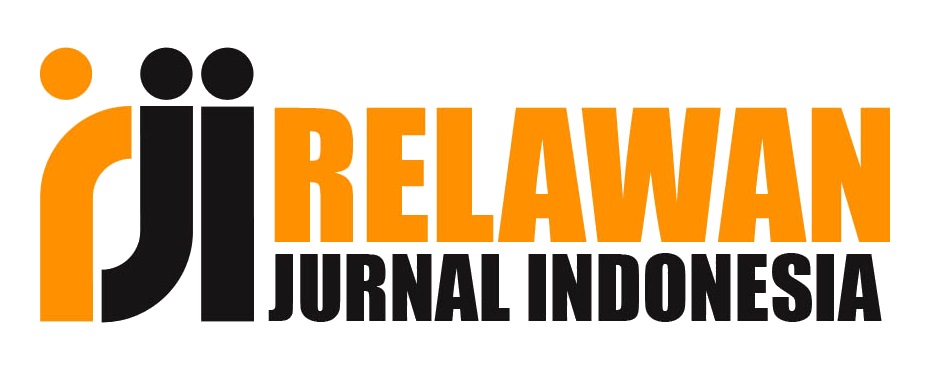An Analysis of EFL Students’ Online Reading Habits
DOI:
https://doi.org/10.63324/jeit.1.1.2025.48Keywords:
EFL Students, English Learning Websites, Online Reading Habits, Reading , Social MediaAbstract
With the fact that current EFL students are digital natives and go online frequently, conducting online-based English skill learning activities is encouraged. As reading is one of the fundamental skills to be developed in the early stage of EFL learning, preparing online-based reading activities for the students can be a good move. This study identifies EFL students’ reading habits, which specifically investigates their source of online reading, their online reading frequency, and factors that influence that habit. The study was conducted in an Islamic state university with a class of 30 English department students as the subject. Questionnaires and interviews were used to gather the data. The study found that students majorly read online from English learning websites and social media, with reading from social media happening more frequently than the other, placing fulfilling college tasks and entertainment purposes as the primary motives of their online reading habits.
References
Ary, D., Jacobs, L. C., & Sorensen, C. (2010). Introduction to Research in Education. USA: Wadsworth.
Arzayeva, M., Rakhimzhanov, K., Abdarahmanova, A., & Umitkaliev, U. (2015). Special aspects of distance learning in educational system. Anthropologist, 22(3), 449-454. https://doi.org/10.1080/09720073.2015.11891900
Bussiere, P.., & Gluszynki, T. (2004). The impact of computer use on reading achievement of 15-years old. Human Resources and Skills Development, Quebec, Canada.
Cheng, Y. H., & Good, R. L. (2009). Effects on EFL learners’ reading comprehension and vocabulary retention. Reading in a Foreign Language 21(2), 199-142. https://eric.ed.gov/?id=EJ859583
Flynn, N., & Stainthorp, R. (2006). The Teaching Learning and Teaching Reading and Writing. Chichester: Wiley.
Ginting, D., Fahmi, F., Barella, Y., Hasbi, M., Kadnawi, K., Rojabi, A. R., & Zumrudiana, A. (2022). Students’ perception on TPACK practices on online language classes in the midst of pandemic. International Journal of Evaluation and Research in Education (IJERE), 11(4), 1995-2009. https://doi.org/10.11591/ijere.v11i4.23014
Hasbi, M. (2017). Preparing digitally literate graduates through journal article reading-based activities. In: The 1st International Conference on English Language, Linguistics, and Literature (ICELLL 2017), 176-184. Institut Agama Islam Negeri Surakarta.
Hasbi, M. (2021). Mahir Inggris Dengan 40 Mobile Apps. Rizquna.
Hasbi, M. (2021). Using Instagram for ELT Purposes. In Reflections on Pedagogical Practices During COVID-19 Pandemic (Pp. 121-130). Pena Persada.
Hasbi, M. (2024). The ways QuillBot enhances English academic writing. In Useful AI Tools for English Teachers (pp. 29-40). Rizquna. http://e-repository.perpus.iainsalatiga.ac.id/21413
Hasbi, M., Islamiah, N., Astawa, N. L. P. N. S. P., Hamidah, F. N., Nor, H., Februati, B. M. N. (2024). How to Teach English to Gen Z Students. Rizquna.
Hasbi, M., Perdana, M. T., Madkur, A., Sari, E. D. P., Nor, H. (2025). Powerful Vocabulary and Grammar Classroom Activities. Rizquna.
Hasbi, M., Rohmah, D. W. M., Rafidiyah, D., Amalia, E. R., Gobel, G.S. (2020). English Teaching Practices in Indonesia during COVID-19 Crisis. CV Raditeens.
Johnson, R. B., & Christensen, L. (2014). Educational Research Quantitaive, Qualitative, and Mixed Approaches. (5th ed). Thousand Oaks, CA: SAGE Publication.
Liu, Z. (2005). Reading behavior in the digital environment: changes in reading behavior over the past 10 years. Journal of Documentation, 61(6): 700-12. https://doi.org/10.1108/00220410510632040
Mikulecky, B. S., & Jeffries, L. (2007). Advanced Reading Power: Extensive Reading, Vocabulary Building, Comprehension Skills, Reading Faster. New York: Longman.
Miles, M. B., & Hubberman, A. (1994). Qualitative Data Analysis: An Expanded Sourcebook (2nd. Ed). London: SAGE.
Nurchurifiani, E., Maximilian, A., Ajeng, G. D., Wiratno, P., Hastomo, T., & Wicaksono, A. (2025). Leveraging AI-Powered Tools in Academic Writing and Research: Insights from English Faculty Members in Indonesia. International Journal of Information and Education Technology, 15(2), 312–322. https://doi.org/10.18178/ijiet.2025.15.2.2244
Ögeyik, M. C., & Akyay, E. (2009). Investigating reading habit and creating literate society. Journal of Language Society and Culture, 28(1), 72-79. https://aaref.com.au/wp-content/uploads/2018/05/28-7.pdf
Rimi, R. (2019). Online Reading Habits of University in Bangladesh & ITS Effects in ESL Classroom. Independent University, Bangladesh. Research Gate.
Sari, A. S. (2024). Building Gen Z-friendly classroom engagement. In How to Teach English to Gen Z Students (pp. 91-98). Rizquna.
Sari, A. S., & Marlinda, S. (2024). Enhancing Students' Reading Comprehension through Reciprocal Questioning. LinguaEducare: Journal of English and Linguistic Studies, 1(2), 107-116. https://journal.ciptapustaka.com/index.php/LEC/article/view/10
Shen, L. (2006). Computer Technology and College Students' Reading Habits. Citeseerx.ist.psu.edu
Sugiyono. (2016). Metode Penelitian Kuantitatif, Kualitatif dan R&D. Bandung: Alfabeta.
Tanjung, F. Z., Ridwan, R., & Gultom, U. A. (2017). Reading habits in digital era: A research on the students in Borneo university. LLT Journal: A Journal on Language and Language Teaching, 20(2), 147-157. https://doi.org/10.24071/llt.2017.200209
Yuliani, S., & Barokah, F. (2017). The influence of online reading habit on reading achievement of the eleventh grade students of senior high school Muhammadiyah 1 of Palembang. English Community Journal, 1(1), 51-59. https://doi.org/10.32502/ecj.v1i1.652
Zulianti, H., Hastuti, H., Nurchurifiani, E., Hastomo, T., Maximilian, A., & Ajeng, G. D. (2024). Enhancing Novice EFL Teachers’ Competency in AI-Powered Tools Through a TPACK-Based Professional Development Program. World Journal of English Language, 15(3), 117. https://doi.org/10.5430/wjel.v15n3p117











